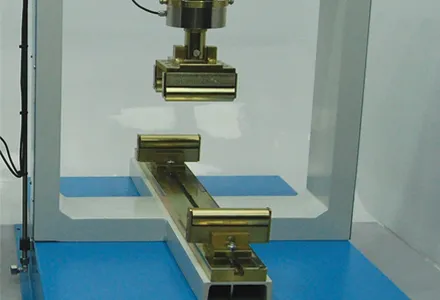
AI says that the new system, known as Automated Inspection and Testing, will see all pavers, rollers and survey vehicles fitted with the latest technology including GPS, infra-red sensors and a data recording unit. All will automatically log high-quality data before, during and after the surfacing process.
This will minimise the risk to employees during pavement construction by replacing the need for a human technician to carry out the highly dangerous task of data capture, explains Neil Leake, national technical manager at
“During this task, technicians are not only exposed to the dangers of working in close proximity to live traffic and construction vehicles but also face a myriad of other risks including lone working and hot material interface.”
Extensive trials, he says, have proved that it has made the road surfacing process infinitely safer. Pavers and rollers can be linked together to manage the compaction process by recording the rolling temperature and the number of passes.
At the same time, it will also go a long way in plugging the industry-wide skills shortage, as it means data capture operatives can now be redeployed to other contracting areas in urgent need of skilled staff.
Meanwhile, the final element of the AIT procedure is surface texture and rolling straight edge testing of the finished pavement. Laser scanning and video recording can now be completed with improved accuracy and without the need for a human technician, meaning zero risk to employees.
“We are now using it on a number of contracts and have seen marked improvements in safety across the board. Importantly it provides enhanced asset management data for our customers that also meets Building Information Management (BIM) compliance.”








